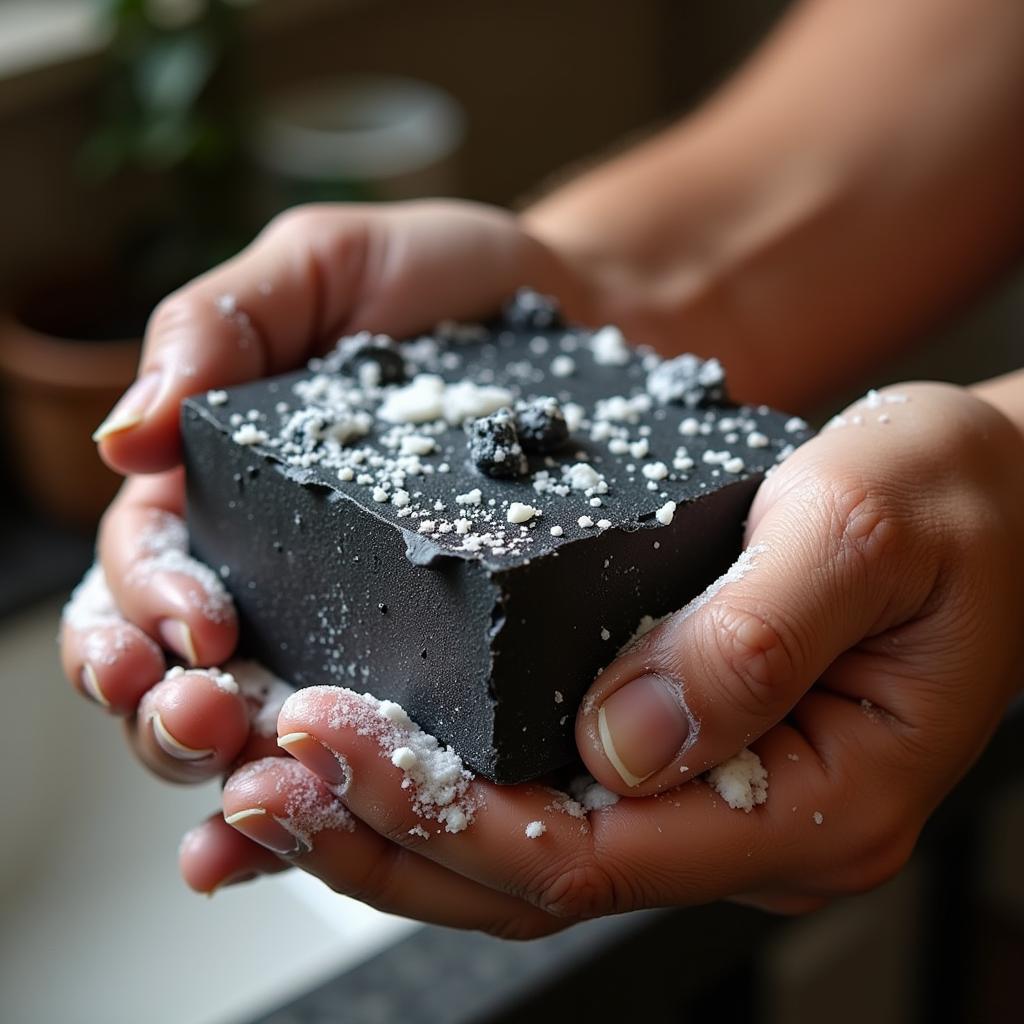Exploring the African Blueberry: Myths, Facts, and Benefits
The African Blueberry, often mistaken for its North American cousin, is a unique fruit with its own distinct characteristics and health benefits. While not a true blueberry, this small, dark berry holds a special place in various African cultures and is gaining recognition worldwide for its potential health-boosting properties. Let’s dive into the world of the African blueberry, separating fact from fiction and exploring its rich history and uses.
You may be surprised to learn more about the so-called “African Blue Blueberries” available in India. Learn more about their potential benefits and availability by reading African blue blueberries benefits and avilability in india.
What is the African Blueberry?
The term “African blueberry” is often used to refer to several different plant species, creating some confusion. The most common species referred to as the African blueberry is Vitex doniana, also known as the black plum or African plum. This small tree is native to sub-Saharan Africa and produces dark purple, almost black, fruits with a thin skin and a slightly sweet, tart flavor. It’s important to note that it’s not a true blueberry, which belongs to the genus Vaccinium. This distinction is crucial for understanding the fruit’s unique properties and avoiding misleading comparisons.
African Blueberry: Nutritional Powerhouse?
While more research is needed to fully understand the nutritional profile of the African blueberry, preliminary studies suggest it contains a variety of beneficial compounds, including antioxidants, vitamins, and minerals. Traditional uses of the fruit point to its potential in supporting various health aspects. These traditional uses often incorporate other aspects of African culture, adding to the rich tapestry of its history.
 African Blueberry Nutritional Benefits
African Blueberry Nutritional Benefits
Traditional Uses and Cultural Significance
Across various African communities, the African blueberry is not just a food source but also an integral part of cultural practices. The fruit is used in traditional medicine to address various ailments, from digestive issues to skin conditions. Its leaves and bark are also utilized for their purported medicinal properties. Furthermore, the fruit holds symbolic significance in some cultures, used in ceremonies and rituals.
Learn about how to find African berry online india.
African Blueberry vs. True Blueberries: Key Differences
While both fruits share a similar dark hue, the African blueberry and the true blueberry are distinctly different. True blueberries are smaller and have a more pronounced sweetness, while the African blueberry has a slightly larger size and a more tart flavor profile. The nutritional compositions also differ, though both are considered to be good sources of antioxidants. Understanding these differences is vital for managing expectations regarding taste and nutritional value.
Culinary Uses of the African Blueberry
The African blueberry’s unique flavor profile lends itself to various culinary applications. It can be consumed fresh, dried, or processed into jams, jellies, and juices. In some regions, it’s used to make wine or added to porridges and other traditional dishes. Its versatility allows for creative incorporation into both sweet and savory recipes, adding a unique African touch to your culinary creations. Have you ever considered adding African blueberry to your smoothie? It might be worth a try!
 African Blueberry Culinary Uses
African Blueberry Culinary Uses
Conclusion: Embracing the African Blueberry’s Potential
The African blueberry, a fruit deeply rooted in African culture and tradition, offers a unique flavor and potential health benefits. While further scientific research is needed to fully understand its nutritional value and medicinal properties, its traditional uses and increasing popularity suggest a promising future for this versatile fruit. So next time you’re looking for a unique and flavorful ingredient, consider exploring the world of the African blueberry.
You might be interested in learning more about African blueberry juice tropicana or considering ways to incorporate African blue blueberries to reduce the weight.
FAQ
- Is the African blueberry a real blueberry? No, it is not a true blueberry. It belongs to a different plant family.
- Where can I find African blueberries? They are primarily found in sub-Saharan Africa and sometimes in specialty markets elsewhere.
- What are the health benefits of African blueberries? They are believed to be rich in antioxidants and other beneficial compounds, though more research is needed.
- How can I use African blueberries in cooking? They can be eaten fresh, dried, or used in jams, jellies, juices, and various dishes.
- What does the African blueberry taste like? It has a slightly sweet and tart flavor.
- Are African blueberries expensive? The price varies depending on location and availability.
- Can I grow African blueberries in my garden? It depends on your climate and growing conditions. They thrive in tropical and subtropical environments.
Scenarios and Questions:
- Scenario: You’re looking for a unique fruit to add to your diet. Question: What are the nutritional benefits of African blueberries compared to other berries?
- Scenario: You’re planning a trip to Africa. Question: Where can I try traditional dishes featuring African blueberries?
- Scenario: You’re interested in natural remedies. Question: What are the traditional medicinal uses of African blueberries?
Further Exploration:
Consider exploring these related topics: the nutritional value of indigenous African fruits, the role of traditional medicine in African cultures, and the impact of climate change on African agriculture.
Need assistance? Contact us 24/7 at: Phone: +255768904061, Email: [email protected] or visit our office at Mbarali DC Mawindi, Kangaga, Tanzania. We’re here to help!

